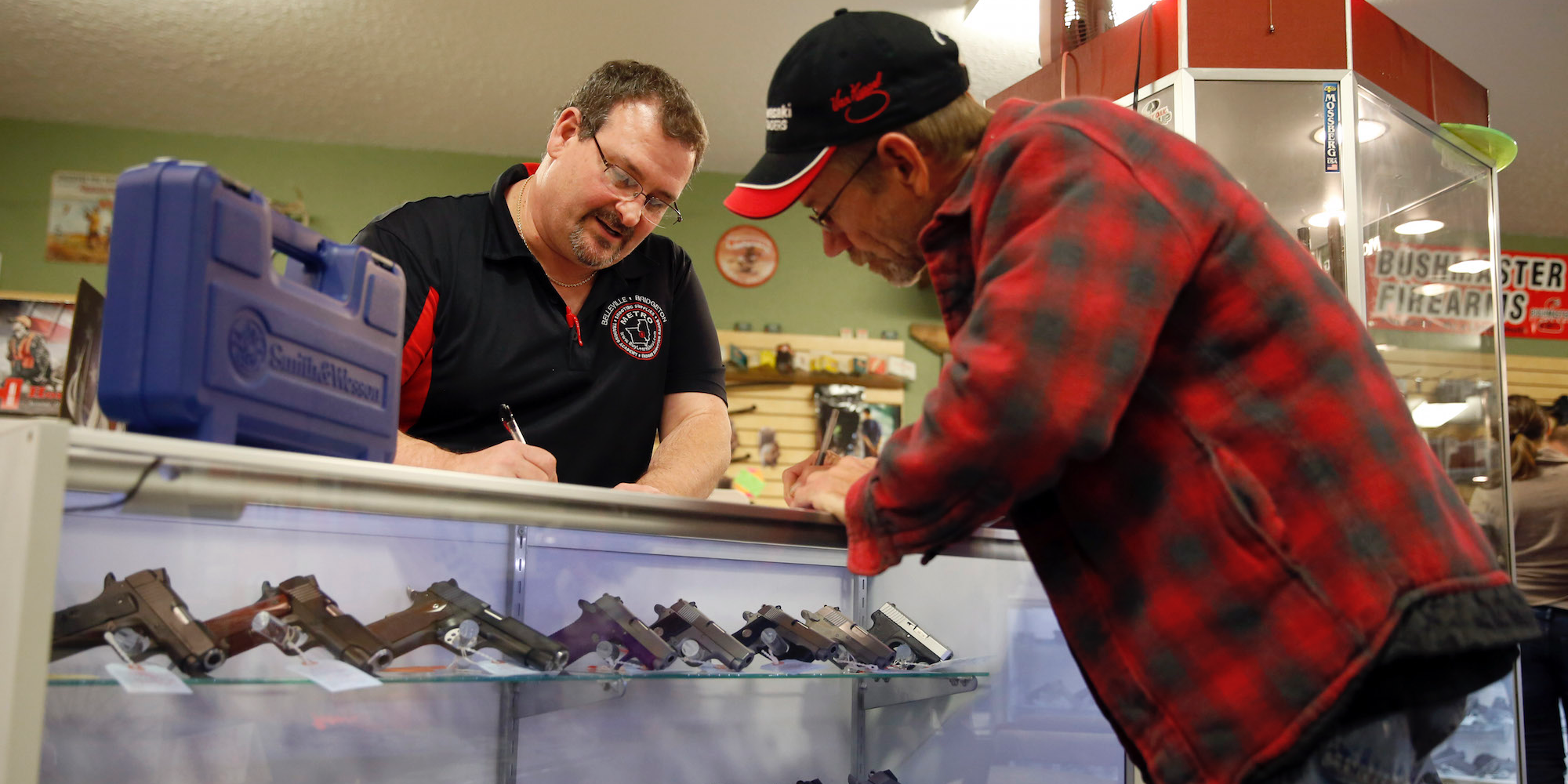- A New York Times columnist floated the idea that banks and credit-card companies could cut business ties with retailers that sell assault weapons and accessories.
- Some finance-industry executives are already on board with the idea, the columnist says.
- Credit-card companies have adopted similar measures in the past, such as banning purchases of bitcoin, cutting ties with the controversial classifieds site Backpage.com, and suspending payments to WikiLeaks.
- This post is part of Business Insider’s series on Better Capitalism.
Last week’s deadly shooting at a Florida high school has renewed calls for gun-control legislation – but some finance-industry titans could take the issue into their own hands.
The New York Times columnist Andrew Ross Sorkin wrote on Monday that he had spent several days speaking with “a handful of chief executives” to discuss how banks and credit-card companies could intervene in gun sales. Sorkin said he found universal enthusiasm, though none of the executives would speak on the record.
Sorkin drew upon Visa’s espousal of “corporate responsibility” to argue that financial companies should change their terms of service to cut business ties with retailers that sell assault weapons, high-capacity magazines, and bump-stock devices designed to accelerate the firing rate of semiautomatic rifles.
“Assault weapons would be eliminated from virtually every firearms store in America because otherwise the sellers would be cut off from the credit card system,” Sorkin said.
The idea has precedent, Sorkin said. Major banks - including JPMorgan Chase, Citigroup, and Bank of America - have in the past barred clients from using their credit cards to buy bitcoin and other cryptocurrencies, citing their risk and volatility.
The financial industry has also intervened in cases where companies feared legal liability for their clients' purchases. In 2015, Visa and Mastercard cut business ties with Backpage.com after law-enforcement agencies accused the classified-ads portal of facilitating sex trafficking.
Visa and Mastercard also suspended payments and donations to WikiLeaks in 2010 after the anti-secrecy website published hundreds of thousands of diplomatic cables. Mastercard argued at the time that its rules prohibited customers from "directly or indirectly engaging in or facilitating any action that is illegal."
Sorkin acknowledged that the idea may be a "pipe dream," noting that at least two executives said they feared the reaction of the National Rifle Association and worried for their employees' safety.
"None of this is a panacea. But it's a start," Sorkin said. "It takes leadership and courage - exactly what these executives say they have. If they don't want to back up their words with actions, the next time there's a school shooting that prompts a conversation about gun companies, it should also include the financial complex that supports them."

